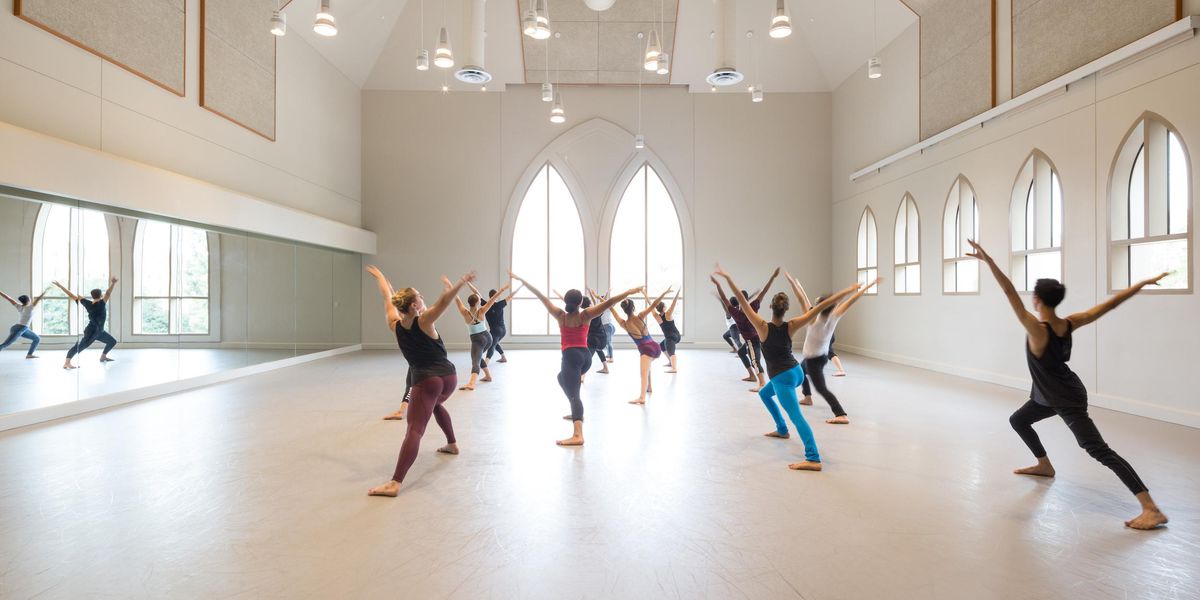Cast Aside?
Hubbard Street’s Alice Klock and Jonathan Fredrickson in Jirí Kylián’s Petite Mort. Photo by Todd Rosenberg, courtesy Hubbard Street.
We all know her, the class favorite. She’s always being praised for her technique. She gets the most corrections. She’s asked to show combinations. She nabs the coveted lead roles and is the first to be recommended for outside opportunities.
But when you’re not your studio’s prized student, the issue can go beyond a bruised ego. It can have an impact on your technical and artistic development. Though it may seem like your future depends on those doling out casting and criticism, it is possible to turn the experience around and get the feedback you need to excel—and perhaps become a stronger dancer because of it.
Check Yourself
Before you bring up your concerns with the school’s faculty, take some time to honestly ask yourself if you are being treated unfairly or if your feelings are stemming from a place of jealousy. It can be easy to fixate on the class favorite as the problem when, instead, you should be focusing on the work you have to do. Shelly Power, director of Houston Ballet Academy, sees this scenario all too often. “Many students are too eager to see the teacher confirm that they’re doing well. Or they compare themselves to the rest of the class when, really, they need to be looking internally,” she says. “You should be learning to assess your own dancing and pushing to improve, no matter what.”
Be entrepreneurial about your training and present yourself professionally. Show up early, dress properly, work hard and pay close attention to your body language. You may not even realize that you’re standing with your arms crossed or leaning against the barre, but this can make teachers feel that you’re not completely committed to your training. “Listen and take in the feedback given to others,” says Power. “Your body language will say you’re engaged. If you’re stretching or checked-out, you’re missing that opportunity.”
Sometimes, it’s about putting in extra hours. “I often felt like a shadow in the background,” says Hubbard Street Dance Chicago’s Alice Klock, who trained at Interlochen Arts Academy and spent summers at San Francisco Ballet, National Ballet of Canada and Miami City Ballet. “But I also knew that I wasn’t getting the steps the fastest or translating the choreography into my own body well. So, I’d do extra work, inside and outside the studio. I built a serious work ethic and I still operate that way.”
Talk to Your Teacher
If you’ve examined your feelings, upped your classroom efforts and still feel that you’re getting the silent treatment, it might help to talk to your teacher after class. Don’t focus on favoritism itself, but on the fact that you would like more feedback and challenging performance opportunities.
“Ask ‘What can I do better?’ And show that you’ve generated some of the answers on your own,” says Power. “You may have an inkling as to why you didn’t get the role, so lead with that. Say ‘I’m assuming I wasn’t cast because of x, y or z. Is that true?’ Or you could say ‘Maybe my petit allégro isn’t the sharpest right now, but if I could learn that role, even though I wasn’t cast, it might help me get better,’ ” says Power. Sometimes, a teacher may not even realize a student feels cast aside. Asking about your weaknesses shows maturity, and helps keep the conversation open in the future.
Take Hold of Your Training
Favoritism can become toxic if you’ve discussed the issue with your teacher and nothing changes, says Atlanta Ballet psychologist Nadine Kaslow. “At that point, you need to ask yourself if you can stay in that environment,” she says. That might mean changing schools or seeking outside classes.
If moving to a new studio isn’t an option, Power suggests finding a mentor, perhaps among your peers. “Recognize what’s great about another dancer and ask them for help,” she says. “There are lots of access points to becoming a better dancer, especially when you refuse to shut down or give in to negative self-talk.”
Though it might not seem like there is an upside to this situation now, dealing with favoritism will help you learn how to cope with it throughout your professional career. In fact, Ballet West’s Jenna Rae Herrera says she didn’t see her work progress until she stopped constantly comparing herself to others. “Ultimately, you have to realize that your value isn’t determined by what happens in the studio,” she says. “Last year, I had my heart set on a promotion that didn’t happen. Once I let go of my insecurities, it helped me push past some of my struggles.” Herrera was recently promoted to demi-soloist for the 2015–16 season. “It was the perfect transition for me, and I wouldn’t change a thing about it.”
Herrera in Balanchine’s
Divertimento No. 15. Photo by Luke Isley, courtesy Ballet West.




